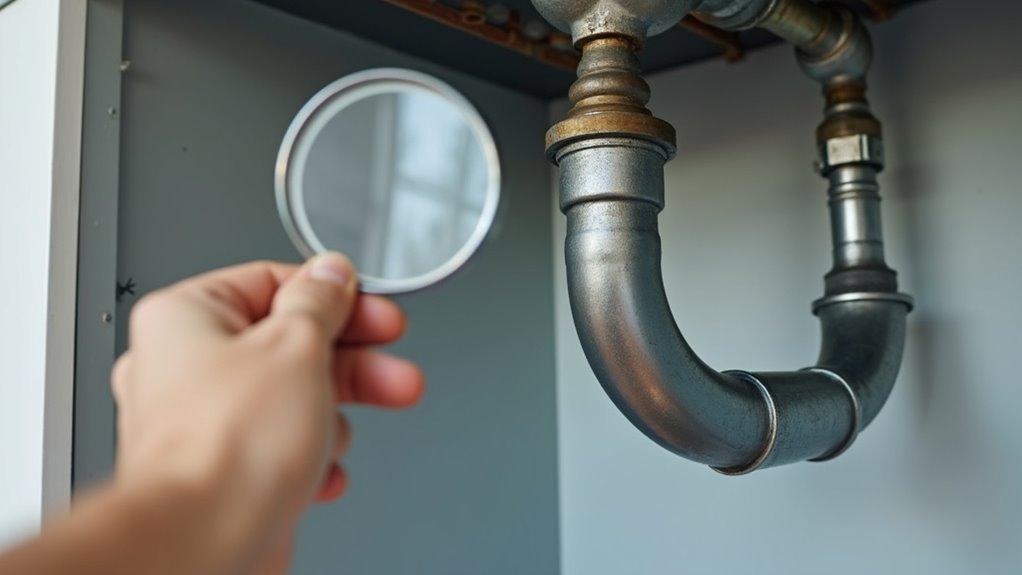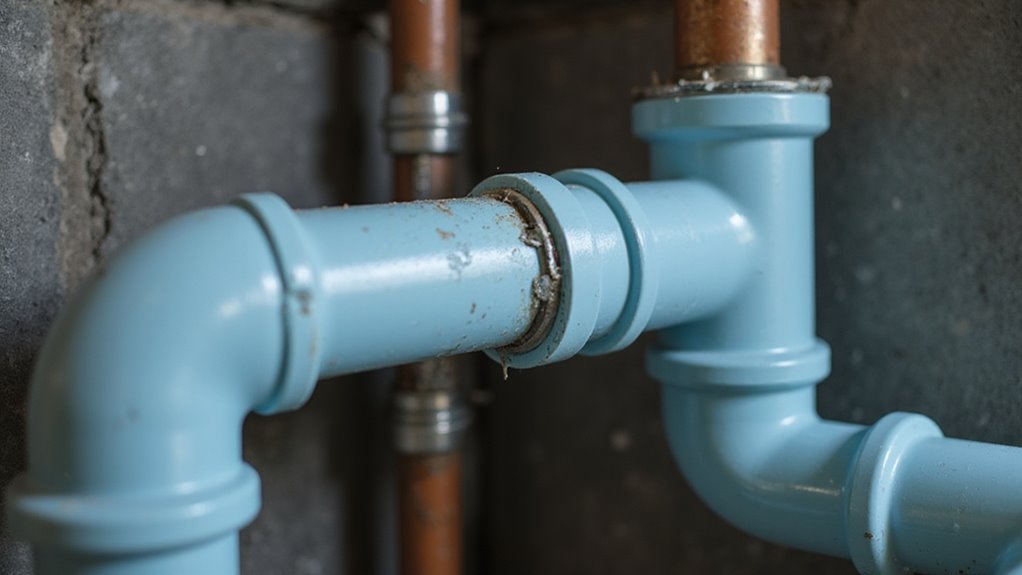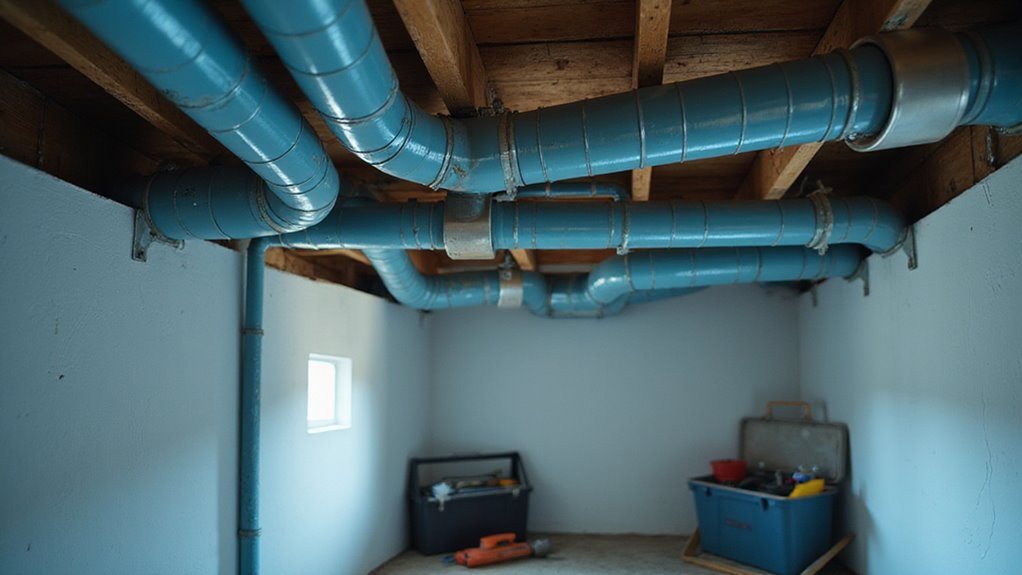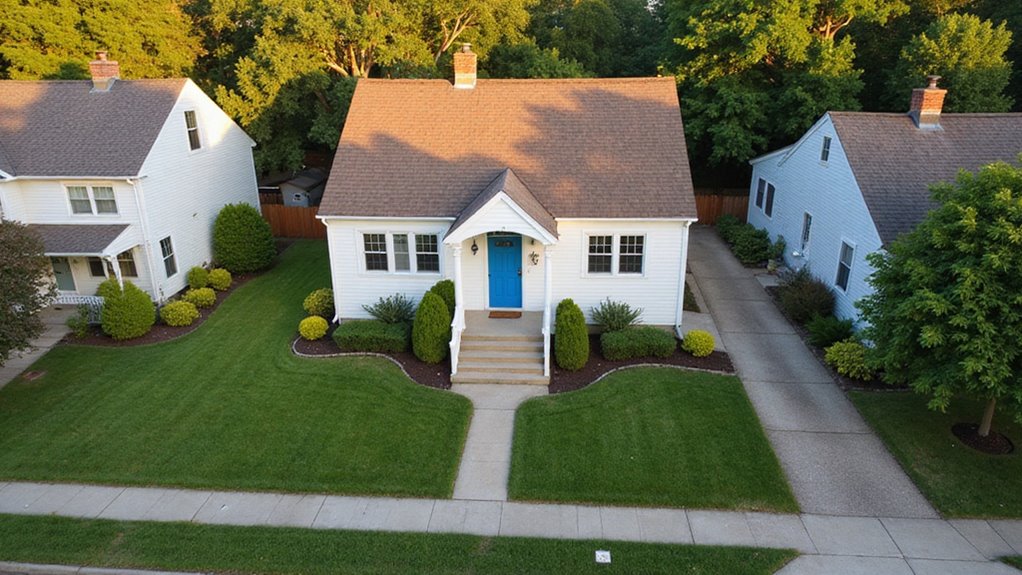Lurking beneath your home’s foundation, polybutylene pipes silently threaten your selling prospects. These notorious plumbing systems can scare away potential buyers and slash thousands from your asking price. Insurance companies often refuse coverage for homes with these failure-prone pipes, leaving both sellers and buyers in a difficult position. Replacing them before listing might be your best path to a stress-free, profitable home sale.
Yes, you can sell a house with polybutylene pipes, but disclosure is mandatory and will impact your selling options. These problematic pipes typically lower property values and may complicate the closing process as buyers struggle to secure insurance or financing. The pipes’ reputation for unexpected failures means many buyers will demand replacements or significant price reductions. In this blog I will explore everything homeowners need to know about selling with polybutylene plumbing.
Key Takeaways
- Legally, you can sell a home with polybutylene pipes, but disclosure of the plumbing issue is required by law.
- Selling with these pipes may reduce your home’s value by 10-25% and impact insurance coverage.
- Replacing the pipes beforehand can increase buyer confidence and help maintain full market value.
- Disclosing the presence of polybutylene pipes and being flexible in negotiations can facilitate a smoother sale.
- Selling to specialized buyers like Shawn Buys Houses offers a quick, hassle-free option without costly repairs.
What Are Polybutylene Pipes and Why Do They Matter?

Polybutylene pipes are a plastic plumbing material installed in millions of homes between 1978-1995. These pipes degrade over time when exposed to chlorine in water systems. Approximately 10 million homes in the United States were built using this material. Failure rates are significant, often causing unexpected water damage and costly repairs.
These pipes matter because they represent a hidden risk for homeowners and buyers. The material was discontinued after class-action lawsuits revealed serious defects. Property disclosure laws require sellers to inform buyers about these pipes if present.
Replacement costs typically range from $4,000 to $15,000 depending on home size. As a result, homes with these pipes often face decreased property values and insurance complications.
Can You Legally Sell a House with Polybutylene Pipes?

Yes, you can legally sell a house with polybutylene pipes. Oklahoma law requires disclosure of all plumbing problems, including polybutylene pipes. Transparency protects you from future legal issues. These disclosures help maintain your property’s value.
Hiding pipe problems leads to buyer distrust and potential lawsuits. In contrast, honest communication builds confidence during negotiations. Furthermore, clear disclosure allows buyers to make informed decisions about repairs. Failure to disclose known defects violates state regulations and real estate standards. Most importantly, ethical selling practices serve both parties’ interests.
How Do Polybutylene Pipes Affect Home Value?

Polybutylene pipes typically reduce home values by 10-25%. These plumbing systems are known for failure risks that make properties less marketable. Most buyers view these pipes as a serious liability. Insurance companies often charge higher premiums or refuse coverage for homes with polybutylene plumbing.
Home inspectors routinely flag these pipes as a material defect requiring replacement. Real estate transactions frequently include repair credits or significant price reductions. As a result, homeowners usually benefit from replacing polybutylene pipes before listing. This investment can restore full market value and eliminate complications during sales negotiations.
What Are Your Options When Selling with Polybutylene Pipes?
You have three main options when selling a home with polybutylene plumbing. First, replace the pipes completely before listing. This builds buyer confidence but requires significant investment. Second, disclose the pipes’ presence honestly during the sale process.
This approach meets legal disclosure requirements in most states. Third, sell the house as-is at a lower price point. This creates a faster selling process but typically results in reduced offers. Additionally, you might negotiate repair credits instead of making changes yourself. Many buyers appreciate this flexibility.
How to Sell a House with Polybutylene Pipes As-Is?
When selling a house with polybutylene pipes as-is, you need to set a realistic price that accounts for the plumbing issues. Focus on marketing to cash buyers who understand the risks and are willing to handle repairs or replacements. Be prepared to negotiate by disclosing the defect upfront and offering concessions to close the deal efficiently.
Pricing Strategy for As-Is Sales
Set a lower price for homes with polybutylene pipes to reflect repair costs. The discount should account for full plumbing replacement expenses. Serious buyers respond better to realistic pricing that acknowledges existing issues.
A home with polybutylene pipes typically sells for 5-10% below market value. This reduction gives buyers room to handle the necessary repairs after purchase. Your agent can help determine the exact discount based on local market conditions.
Price transparency builds trust with potential buyers. It prevents negotiations from falling apart during inspection. Most buyers appreciate honesty about known defects upfront rather than discovering them later.
Marketing to Cash Buyers
Cash buyers are ideal prospects when selling homes with polybutylene pipes. You must disclose all property defects honestly to avoid legal problems later. State law requires full disclosure of material defects before any sale. Selling as-is lets buyers know exactly what they’re getting.
This approach creates transparency that cash buyers appreciate. They can factor repair costs into their offers immediately. Most experienced cash buyers expect some property issues.
Cash transactions typically close 2-3 weeks faster than financed purchases. The right pricing strategy matters tremendously in these situations. Cash buyers look for value and often expect discounts for taking on problems. However, clear disclosures build trust that can preserve more of your equity.
Negotiation Tactics for Disclosure Situations
Smart disclosure of polybutylene pipes can strengthen your negotiating position. Present complete documentation about past water leaks and current plumbing condition. Honesty builds trust with potential buyers during the disclosure process. Your transparency demonstrates integrity and reduces their anxiety.
Be ready for detailed questions during inspection. Buyers legally have the right to thorough property inspection before purchase. Address concerns directly with factual information rather than defensive responses. Preparation helps prevent last-minute negotiation surprises.
Consider getting repair estimates in advance. This shows buyers you understand the situation realistically. Most buyers appreciate proactive sellers who acknowledge issues openly.
Should You Replace Pipes Before Selling?
Yes, you should replace polybutylene pipes before selling your home. This replacement increases your property value and prevents last-minute negotiation issues. Buyers often fear these pipes due to their reputation for failure. The upfront cost typically pays off through a smoother sale process and better price.
Most home inspectors will flag polybutylene pipes as a potential problem. Some mortgage lenders may even refuse loans for homes with these pipes.
Replacement shows buyers you’ve maintained the property properly. Your home will stand out against similar properties with old piping systems. The alternative means disclosing the pipes and likely accepting a lower offer. Many buyers will request an allowance for replacement anyway. Taking care of this issue proactively gives you more control over the sale terms.
How to Find Cash Buyers for Plumbing-Issue Homes?
Cash buyers for plumbing-issue homes can be found through specialized channels. Seek real estate investors who specialize in distressed properties with known defects. These investors understand the risks of polybutylene pipes and similar issues. Network in real estate investment groups where members often purchase homes with problems.
Disclose all plumbing issues completely during sales negotiations to avoid legal complications later. Many cash buyers appreciate this transparency. Consider offering a modest discount that reflects repair costs.
Local contractors sometimes buy fixer-uppers or can connect you with investors. Additionally, online platforms for distressed properties attract the right buyers. Remember to gather repair estimates before listing to set realistic expectations.
Ready to Sell Your Home with Plumbing Issues? Contact Shawn Buys Houses Today
Yes, you can sell a home with plumbing problems through Shawn Buys Houses. We purchase properties with polybutylene pipes and other plumbing defects. Real estate laws and housing codes often require disclosure of significant plumbing issues. Our team handles these complications for you.
We eliminate the stress of warranty concerns and insurance challenges. Many traditional buyers avoid homes with polybutylene pipes. Polybutylene class action settlements ended years ago, leaving homeowners without recourse. Furthermore, we solve the mortgage approval obstacles that typically delay sales.
Frequently Asked Questions
What Disclosures Are Legally Required When Selling a Home With Polybutylene Pipes?
You must disclose any known material defects, including defective plumbing like polybutylene pipes, on the Seller’s Disclosure Statement. Honesty protects you legally, builds trust, and ensures buyers are fully informed of significant issues before closing.
Can Homeowners Get Insurance Coverage for Homes With Polybutylene Piping?
You can get insurance coverage for homes with polybutylene pipes, but many companies might refuse or raise premiums due to the higher risk. Be transparent with insurers and shop around to find the best coverage options available.
How Does Undisclosed Polybutylene Piping Impact Legal Liability After Sale?
If you don’t disclose polybutylene pipes, you risk legal liability after the sale. Buyers can sue for damages or rescission if they uncover the defect, especially if you knew or should have known about it.
Are Partial Pipe Replacements Sufficient for Insurability and Resale?
Partial replacements often aren’t enough for insurance coverage or resale. You need to fully replace the piping to address possible failures, satisfy buyers’ concerns, and improve insurability, ensuring transparency and peace of mind for everyone involved.
What Are Typical Costs for Fully Replacing Polybutylene Pipes in Oklahoma?
Envision turning a costly problem into a fresh start—replacing polybutylene pipes in Oklahoma costs between $4,000 and $15,000. You can help homeowners secure better value and peace of mind with thorough, professional repiping.


